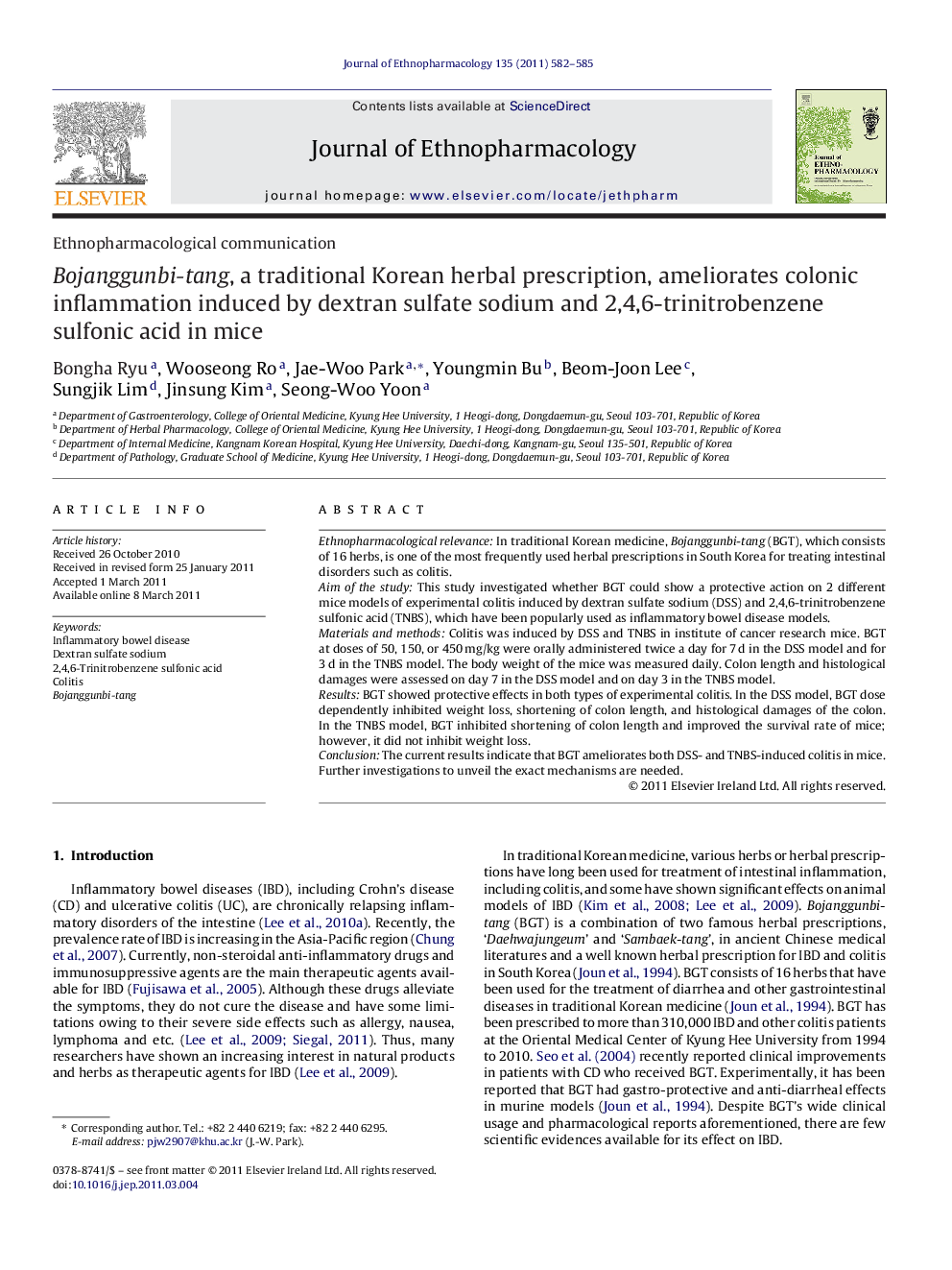| Article ID | Journal | Published Year | Pages | File Type |
|---|---|---|---|---|
| 5839793 | Journal of Ethnopharmacology | 2011 | 4 Pages |
Ethnopharmacological relevanceIn traditional Korean medicine, Bojanggunbi-tang (BGT), which consists of 16 herbs, is one of the most frequently used herbal prescriptions in South Korea for treating intestinal disorders such as colitis.Aim of the studyThis study investigated whether BGT could show a protective action on 2 different mice models of experimental colitis induced by dextran sulfate sodium (DSS) and 2,4,6-trinitrobenzene sulfonic acid (TNBS), which have been popularly used as inflammatory bowel disease models.Materials and methodsColitis was induced by DSS and TNBS in institute of cancer research mice. BGT at doses of 50, 150, or 450Â mg/kg were orally administered twice a day for 7Â d in the DSS model and for 3Â d in the TNBS model. The body weight of the mice was measured daily. Colon length and histological damages were assessed on day 7 in the DSS model and on day 3 in the TNBS model.ResultsBGT showed protective effects in both types of experimental colitis. In the DSS model, BGT dose dependently inhibited weight loss, shortening of colon length, and histological damages of the colon. In the TNBS model, BGT inhibited shortening of colon length and improved the survival rate of mice; however, it did not inhibit weight loss.ConclusionThe current results indicate that BGT ameliorates both DSS- and TNBS-induced colitis in mice. Further investigations to unveil the exact mechanisms are needed.
Graphical abstractDownload high-res image (173KB)Download full-size image
